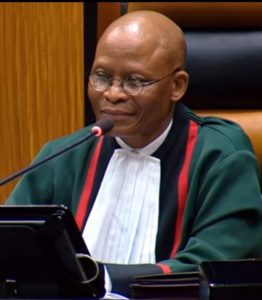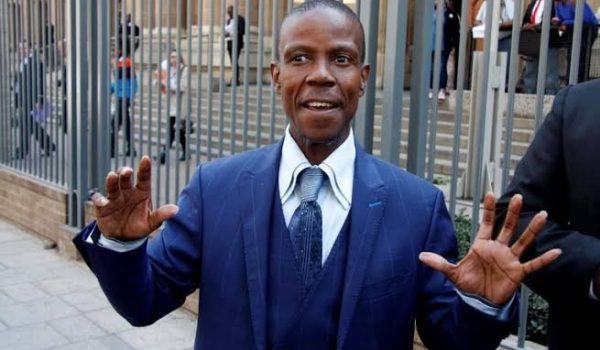Chief Justice Mogoeng leaves his post amid almost as much controversy as he entered it, with eyebrows raised over his absence from the judicial centre stage since he went on leave in May, leaving his deputy, Raymond Zondo, acting while also bogged down with the state capture inquiry.

Chief Justice Mogoeng Mogoeng, whose tenure officially ends on Monday, is no stranger to controversy.
His appointment by Jacob Zuma in 2011 saw concerns raised over his relative youth and inexperience, some of his socially conservative judgments, and fears that he would perform as a Zuma lackey.
This did not happen. Mogoeng was fierce in his defence of the judiciary when it came under attack in 2015, while legal experts said that his Nkandla judgment in 2016, which forced Zuma to repay some of the money spent on refurbishing his homestead, will be seen as a high-water mark of his tenure.
But his abrupt departure on long leave in May has raised questions.
Chief Justice Mogoeng leaves his post amid almost as much controversy as he entered it, with eyebrows raised over his absence from the judicial centre stage since he went on leave in May, leaving his deputy, Raymond Zondo, acting while also bogged down with the state capture inquiry.
Nicole Fritz of Freedom Under Law: “His disappearance in moving off-stage in these last few months has seemed fairly inexplicable, particularly given the many contentious cases that have come before the court and where leadership from the Chief Justice has been so much required and I also think his role as head of the Judicial Service Commission has left so much to be desired.”
Mogoeng is appealing a guilty finding against him of judicial misconduct over statements he made in Israel and faces another complaint about comments he made about vaccines.
Mogoeng leaves the apex court with a number of vacancies to fill. It is now up to President Cyril Ramaphosa to choose his successor from a list of eight names submitted after the public was invited to make suggestions.
Lawson Naidoo of the Council for the Advancement of the South African Constitution (Casac): “The important thing is that it’s somebody who has a range of skills, including effective leadership, who will be able to command respect among their peers on the judiciary and will be able to be an effective leader of the court, the Judicial Service Commission and the Office of the Chief Justice.”
Source: EyeWitnessNews









Comments